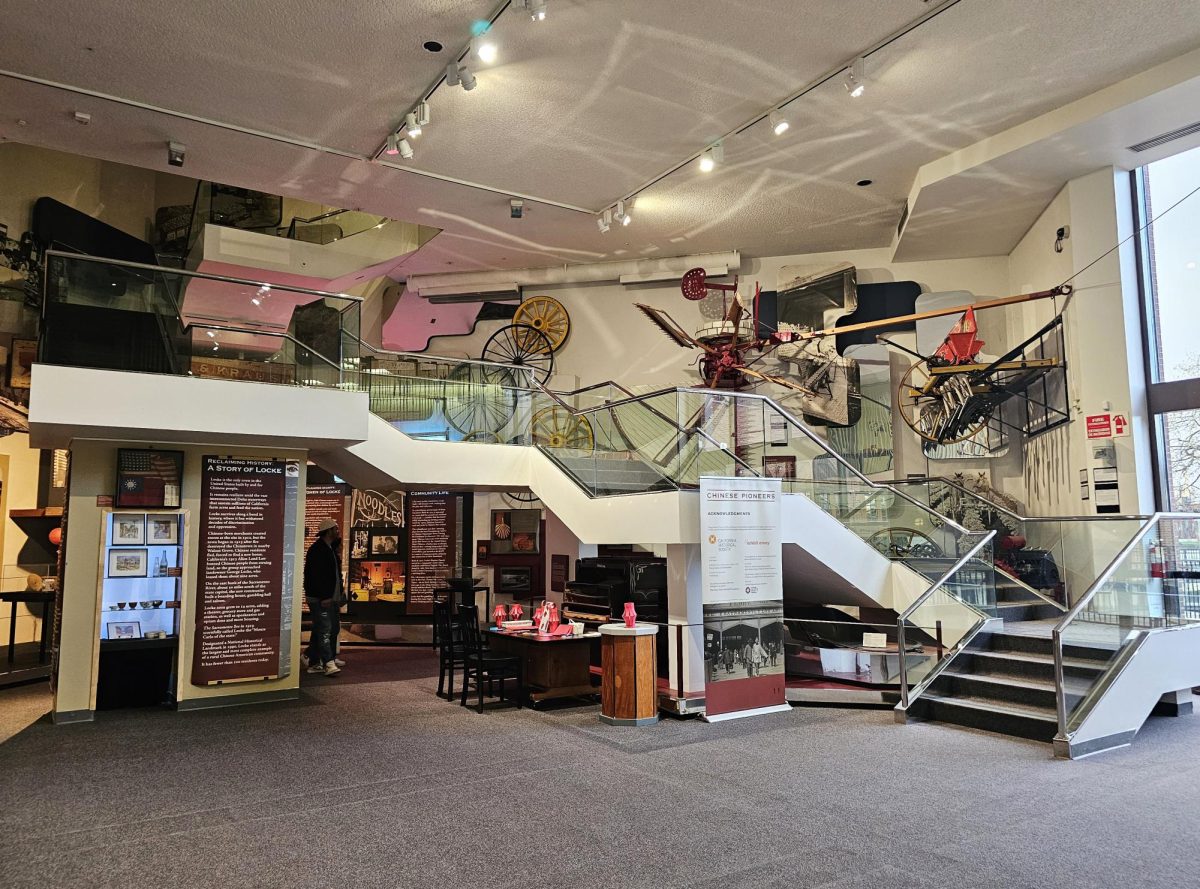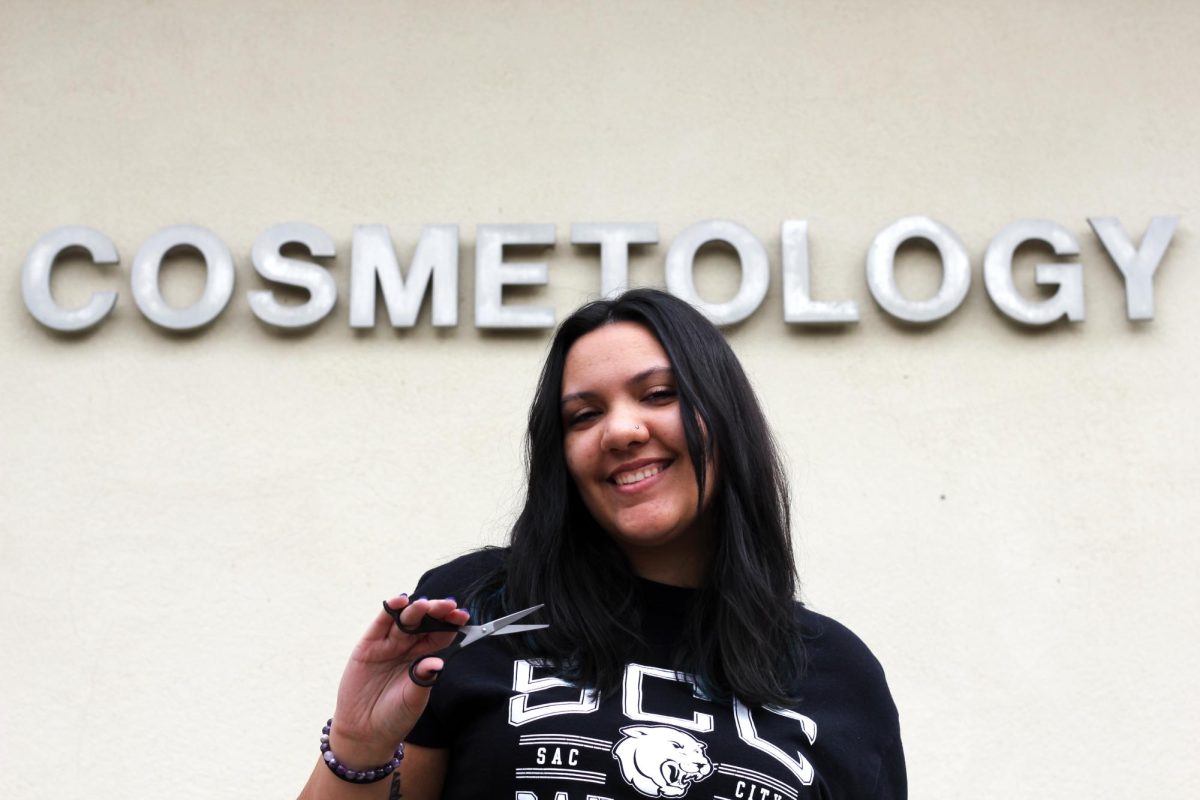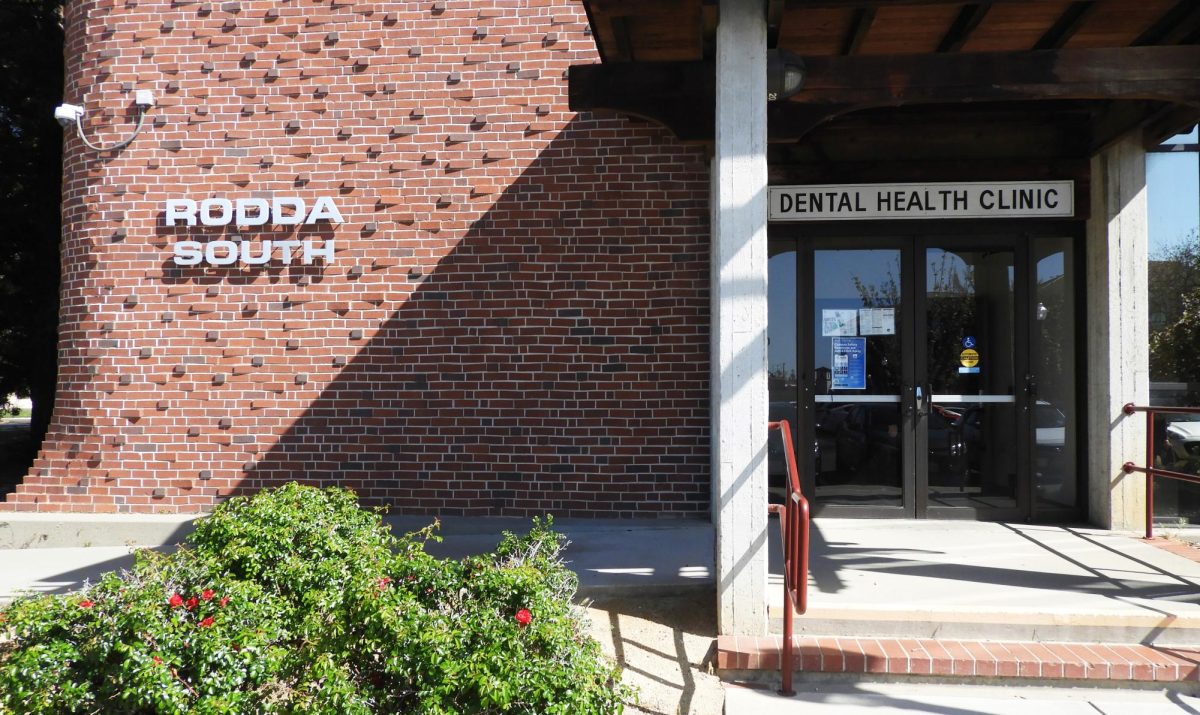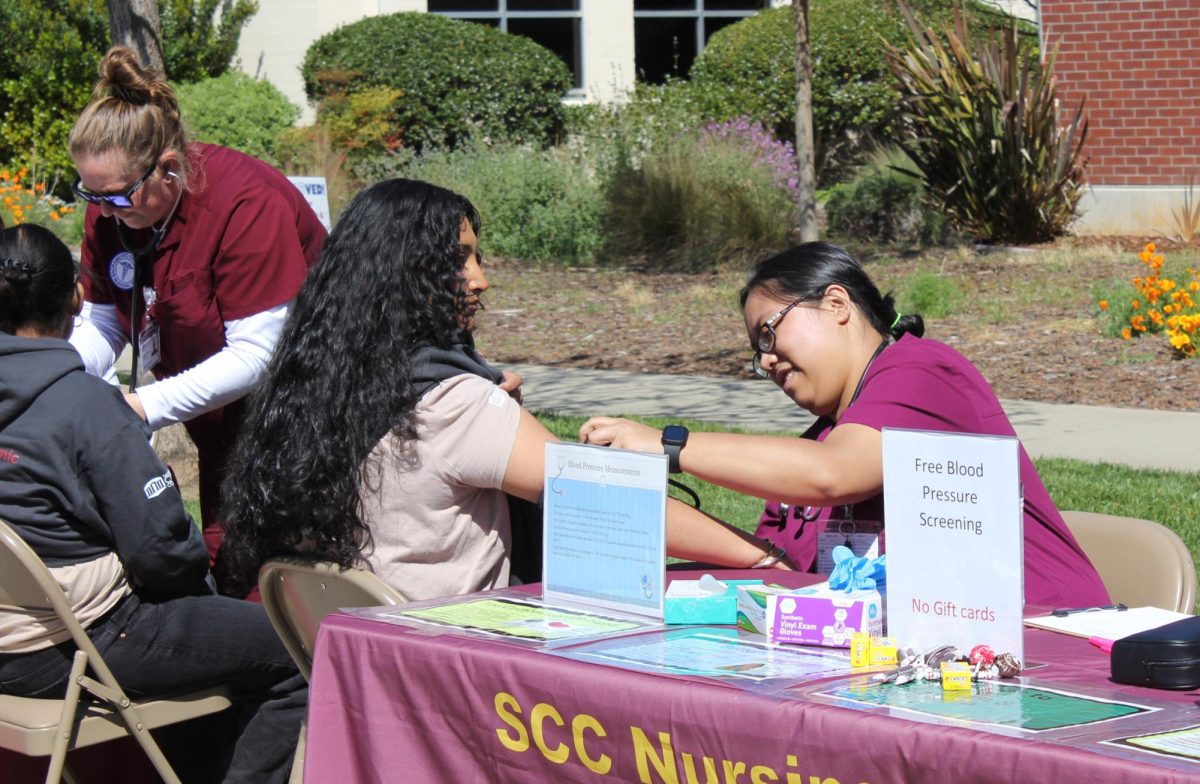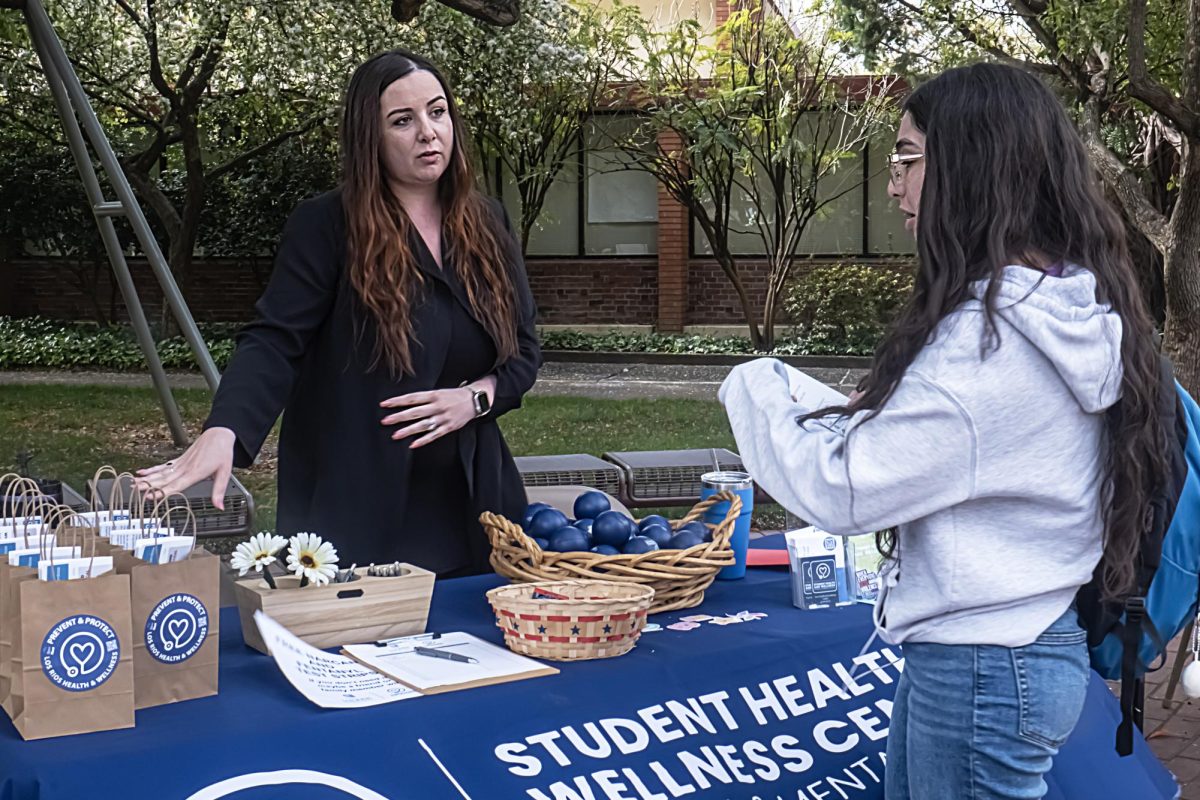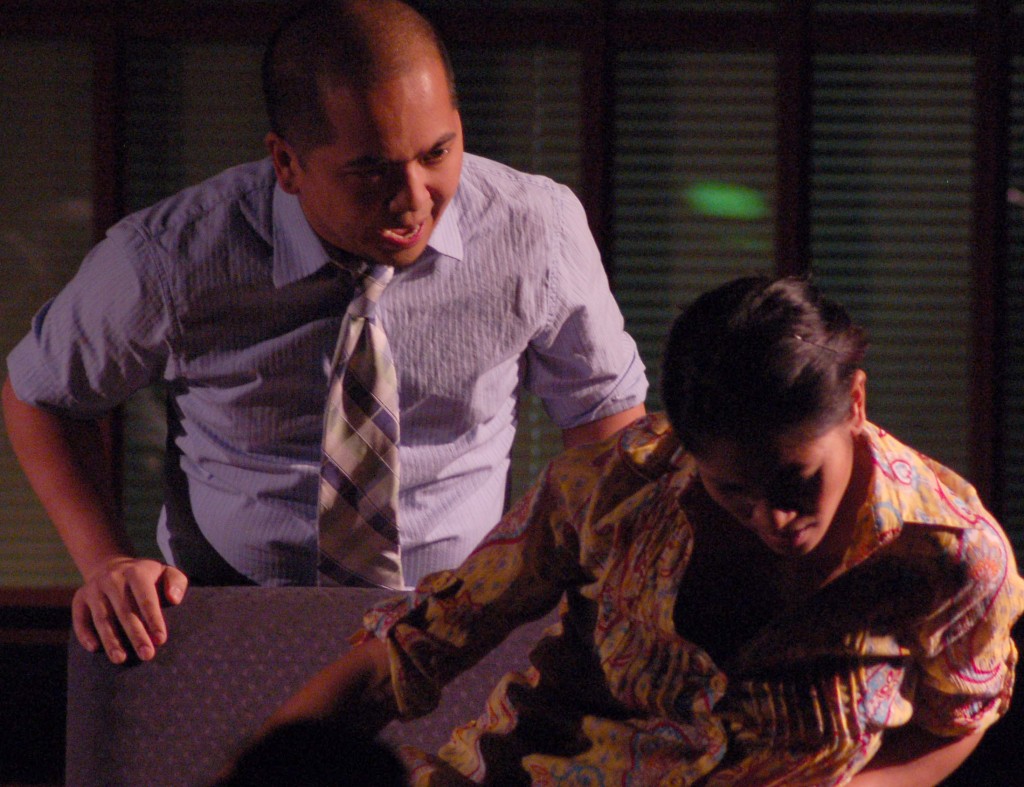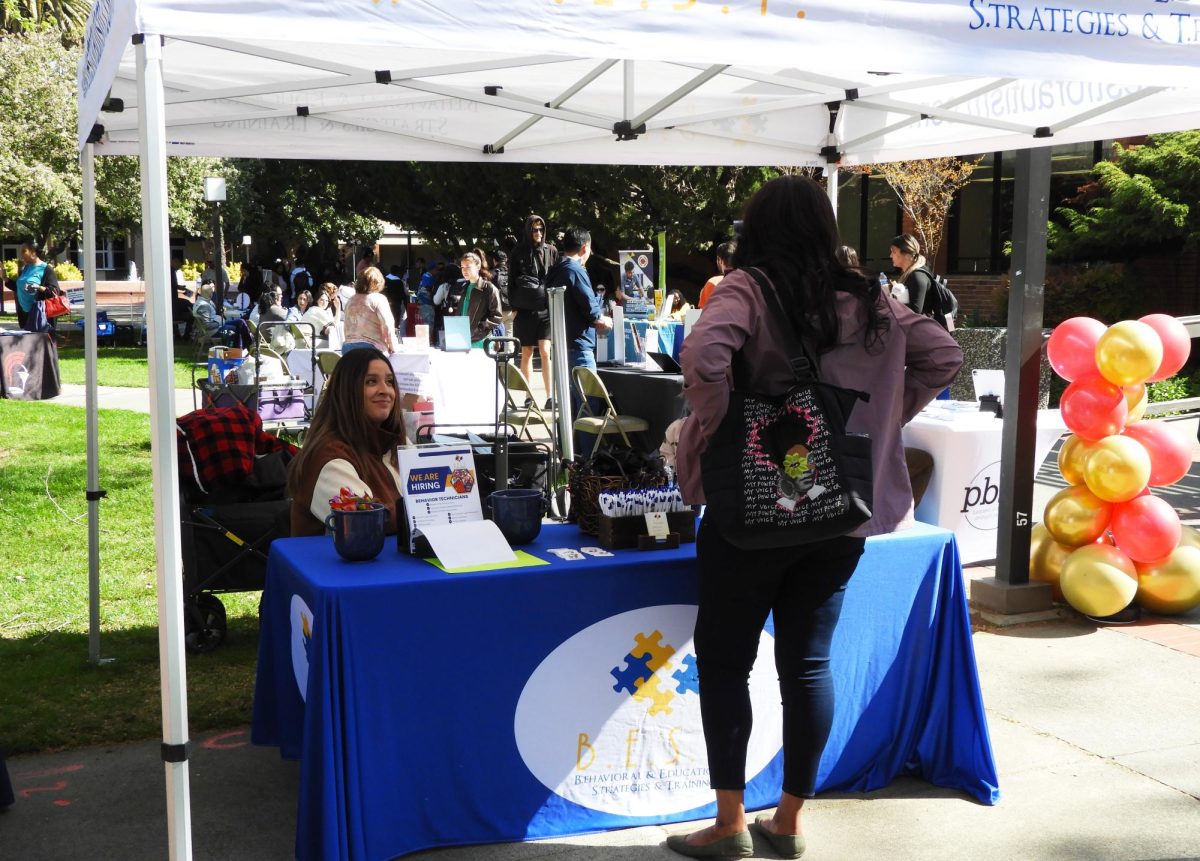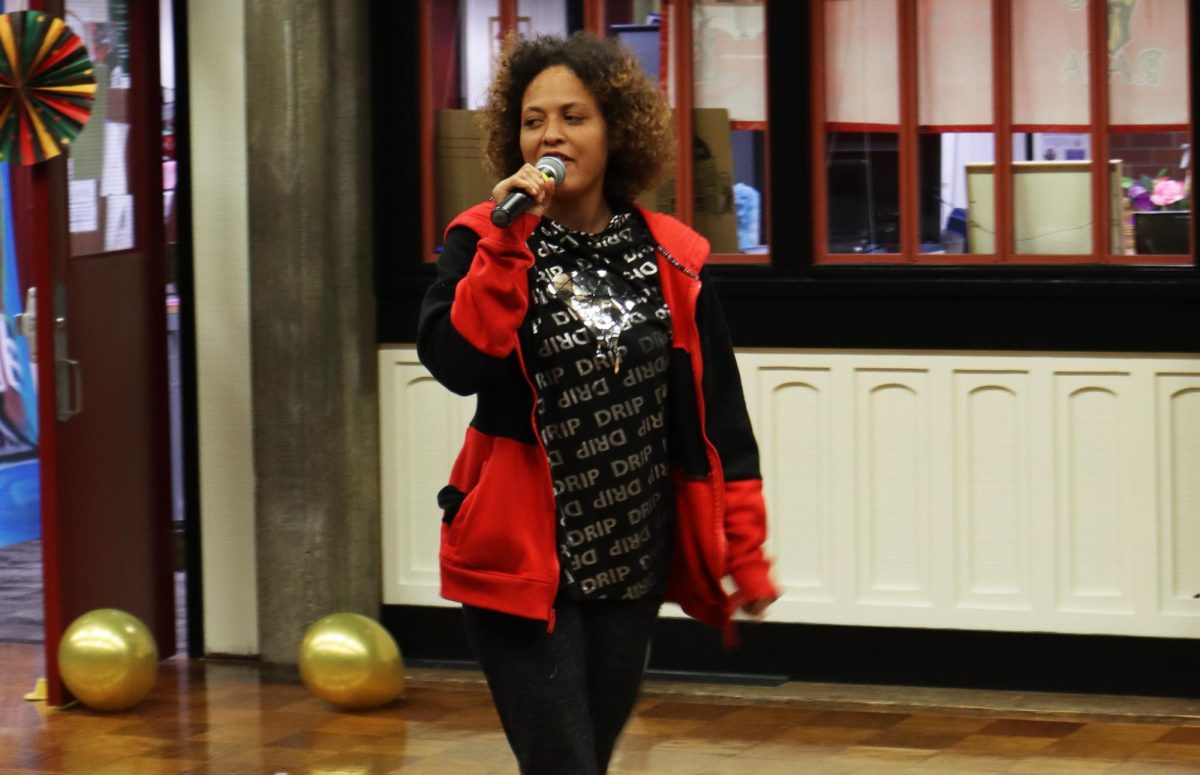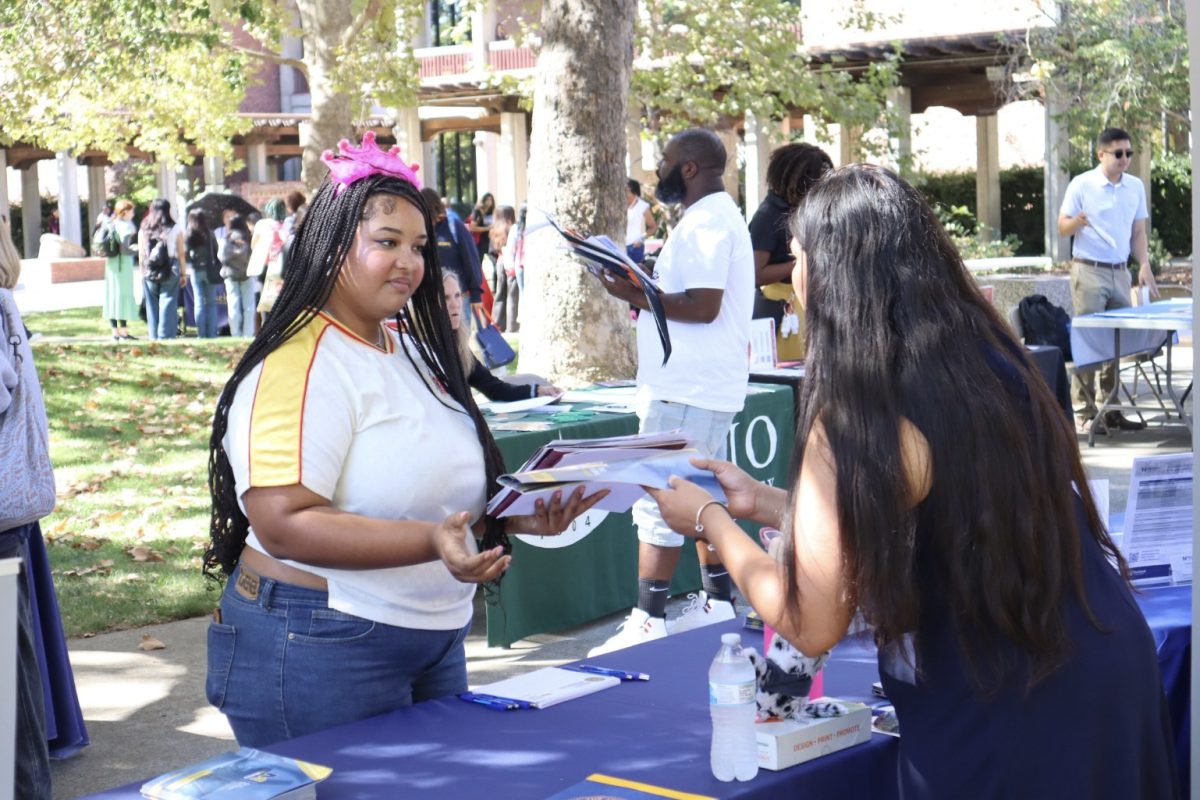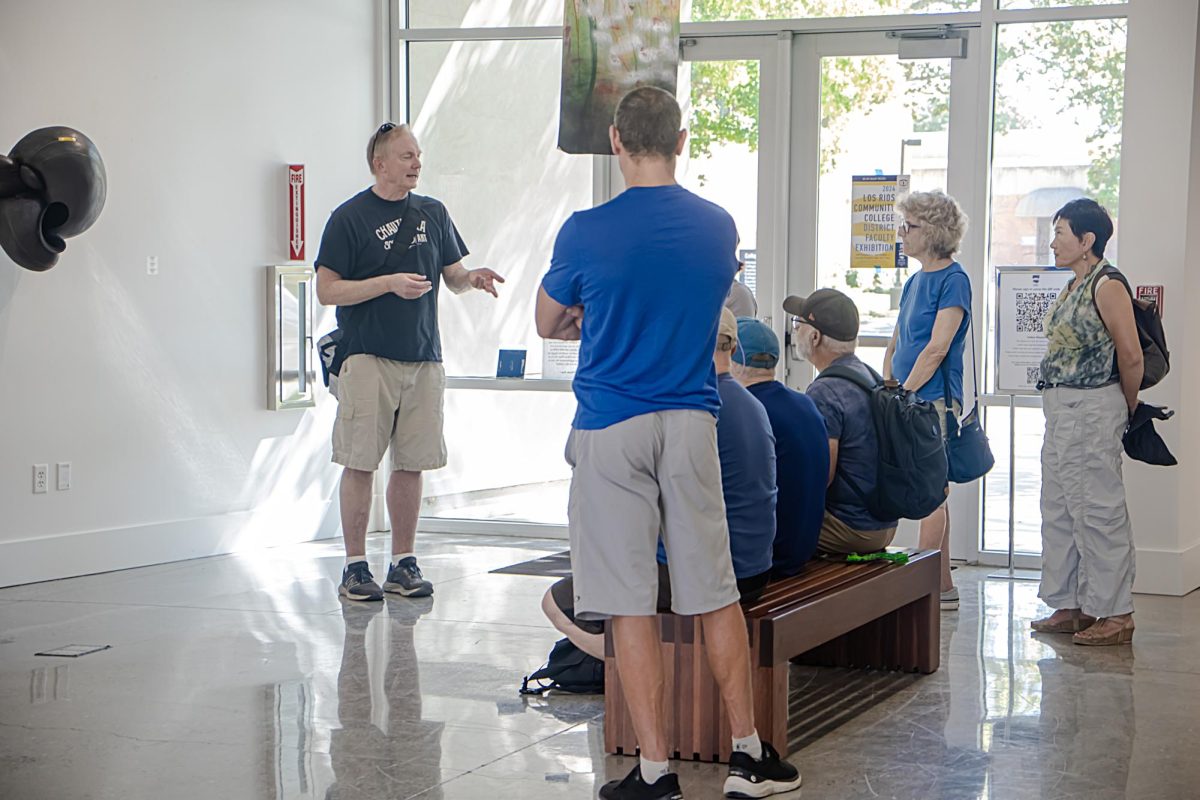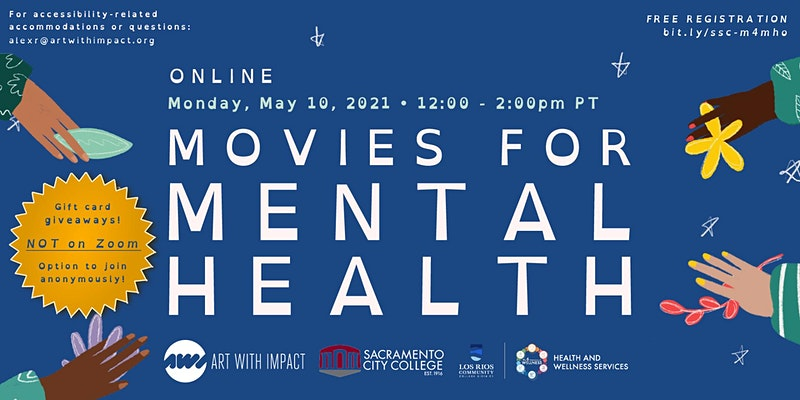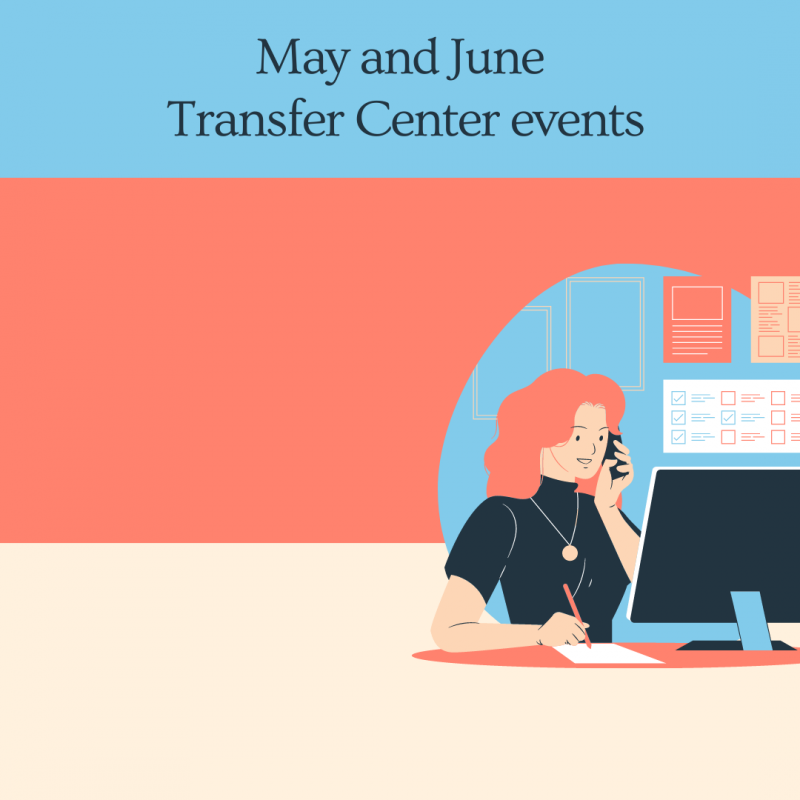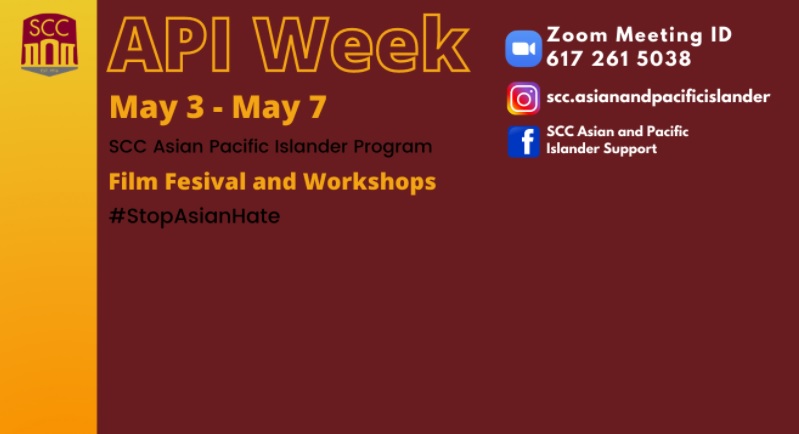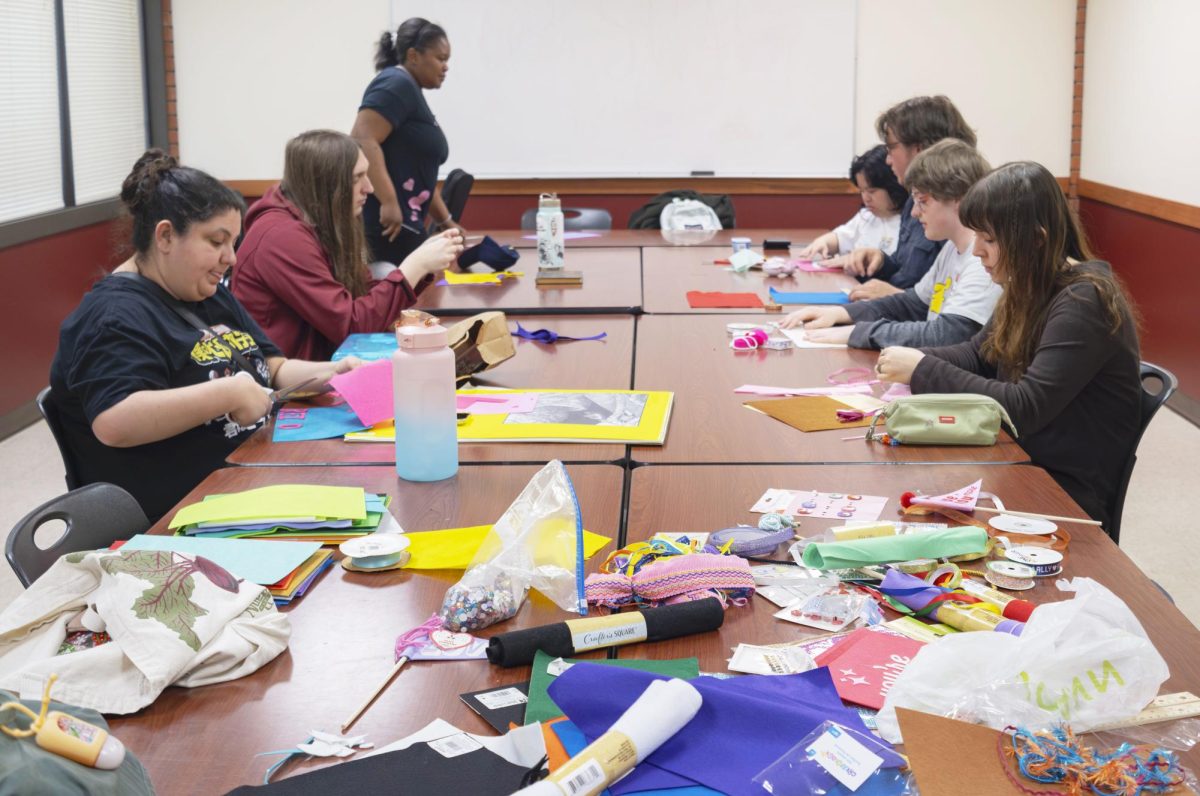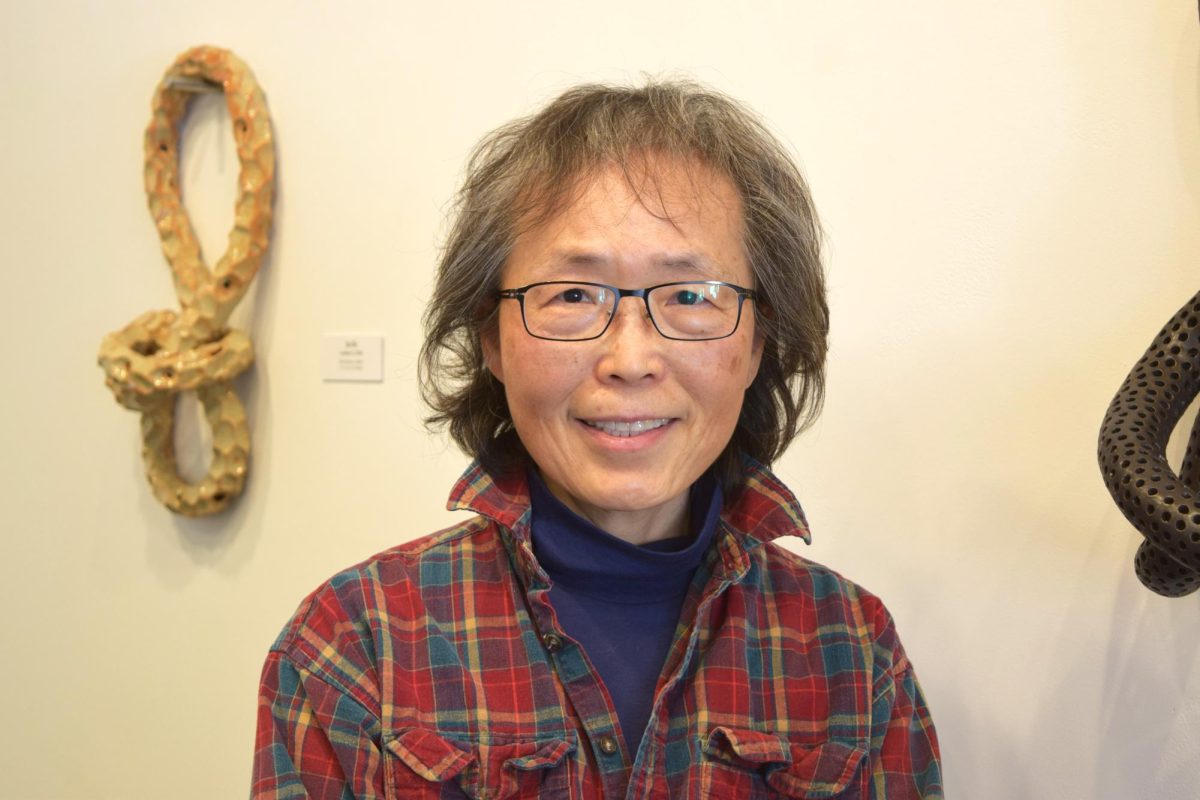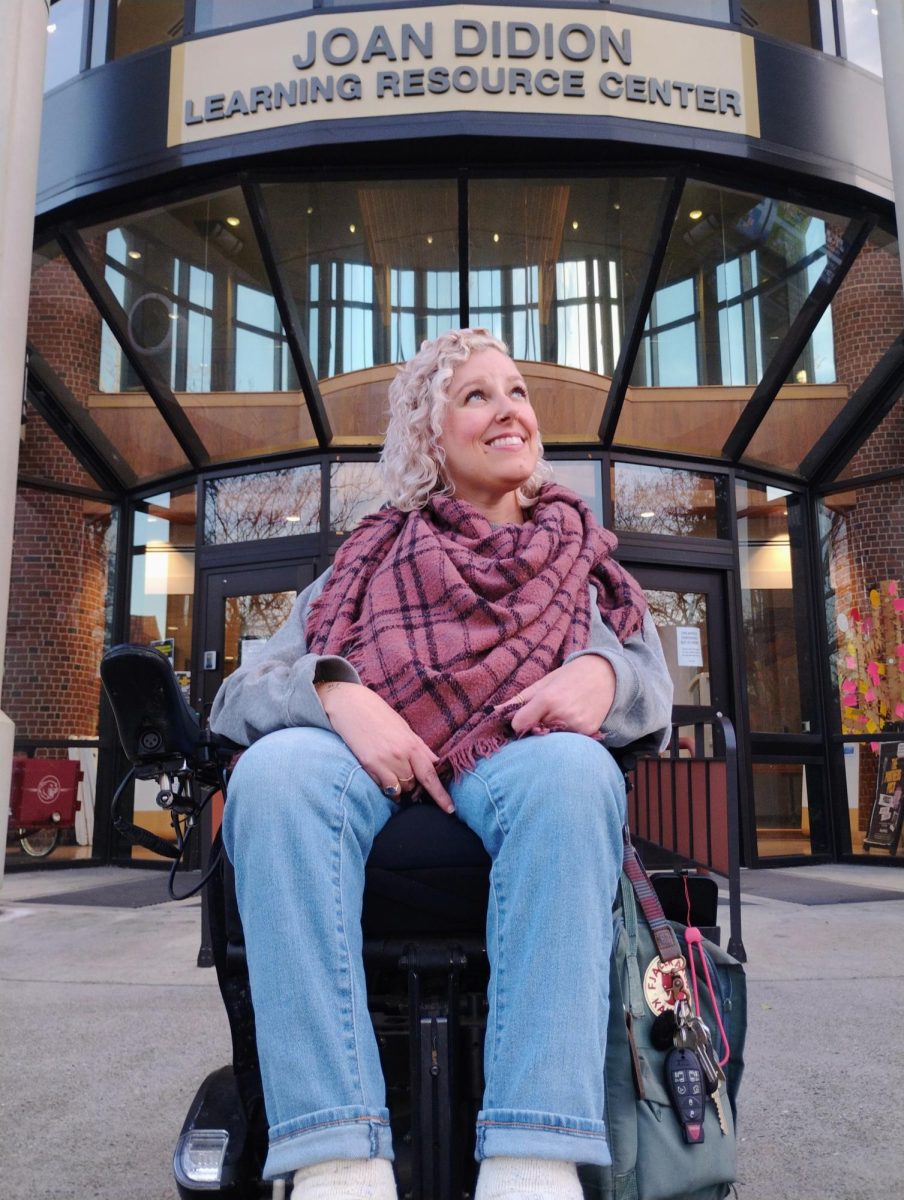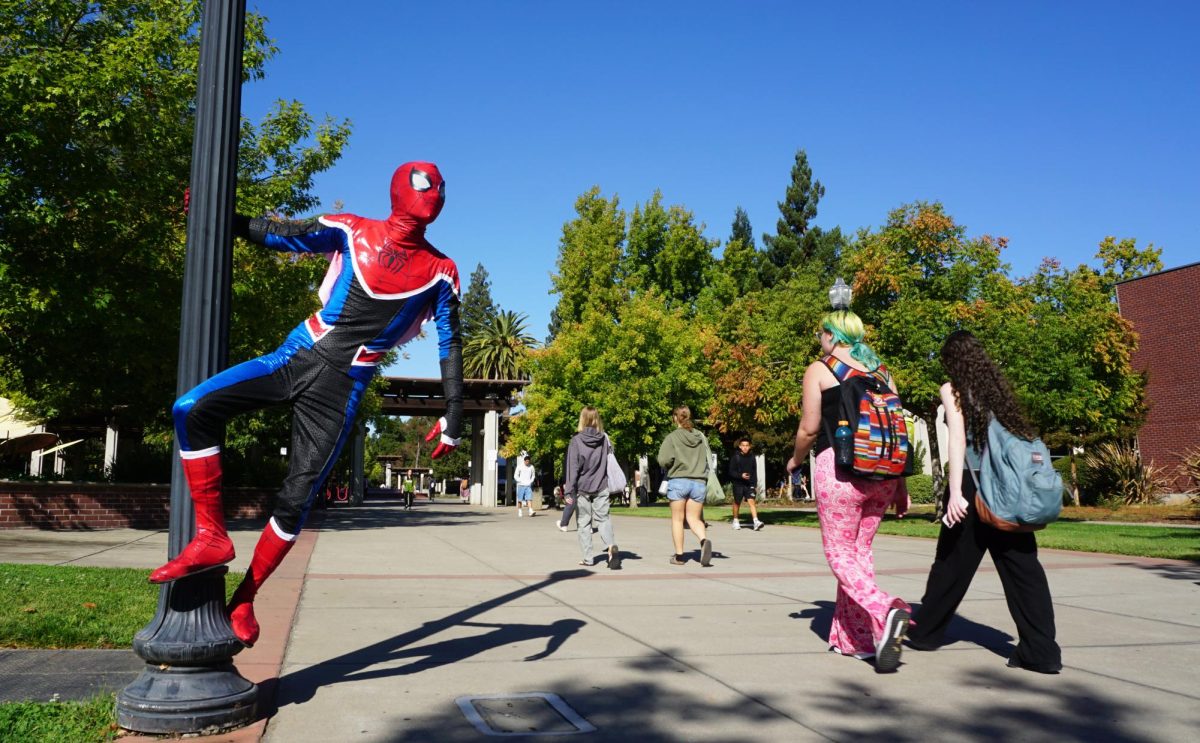Hosted by Tamara Knox, the Domestic Violence Awareness Workshop was held Oct. 24 at the Student Center on campus.
The all-day event was full of helpful information and powerful, emotional stories.
With a focus on domestic violence survival, inspirational speakers shared their stories, along with resources to help spread information for people in violent relationships.
Carla Fleming, vocalist for Carla Fleming’s Jazz Band, spoke and performed at the event. Her tale of domestic violence survival was one of many featured at the event.
Carla Fleming was with her abuser since she was 15 years old. He had threatened her family and even used to fight with her family. They had a son together, which made leaving a little more difficult.
Her wakeup call was when he came home one night and, thinking she was asleep, put a gun to her head. She knew he didn’t have the courage to pull the trigger at that point, but she also knew he was testing it out and trying to work up the courage to do it. When he fell asleep that night, she snuck out with the gun and her son and called the cops to turn in the gun. Unfortunately, one of the cops didn’t believe that the gun wasn’t hers. She ended up getting a restraining order but didn’t leave him. They went to couples counseling instead.
After a while, she realized she needed to make him believe it was his idea for her to leave. Carla left in the middle of the night one day after she realized there was no saving their relationship and though she was still harassed for years after, her life got better.
City College student Steven Roller was another speaker featured at the workshop. He spoke about his ex-wife. They met when she was 14 and he was 18, and it was love at first site. After dating for a little while, they moved in together and then got married.
“Boy, you’re going to marry my daughter today” is what his mother-in-law had said to him, and he did.
The marriage didn’t last, and they went their separate ways on good terms. After a while she moved to Florida and got married, and they lost contact.
One day, seemingly out of the blue, Steven had a thought that he needed to talk to her. It wasn’t too difficult to get into contact with her mom, but the news he received wasn’t what he expected. Steven learned that his ex-wife had committed suicide due to her husband’s abuse; he mentally and physically abused her, even in front of her family.
“I don’t know why, I just all of a sudden needed to get in contact with her. I was a week too late. I miss her.” Steven remembered that she loved waterfalls, so he made one in his backyard and talks to her sometimes.
Stories like Fleming and Roller’s set the stage for workshop attendees who face similar situations to reach out to a number of support organizations that made their resources available at the event.
These organizations included ManAlive-Sacramento, My Sister’s House, Head Start, I-can and Intimate Partner Violence.
ManAlive- Sacramento
ManAlive-Sacramento is a program based on correcting old male role belief system that men need to prove themselves that they are superior; it’s essentially a correction facility for violent men.
“I don’t like to call us a Batterers Treatment Program; I refer to us as an Accountability and Awareness Program,” said Daniel Thomas, the Director and Facilitator of ManAlive. The focus of the program is to stop “my violence” and accept responsibility, instead of blaming the victim or focusing on what that person did; “She’s not here. You’re here, let’s work on you.”
ManAlive offers the men an opportunity to make changes only if they’re willing, no one is forcing them to change; it’s about controlling the Inner Hitman inside that causes all of the angry thoughts and actions. The program tries to get the men to understand that “we’re all equal; whether we’re men or women,” said Daniel.
Violent actions don’t just affect one person; there are many sub-victims, such as family and friends of the victim. Some men understand that and some don’t, and that’s what the program is for. “Men are trained not to feel; unless it’s anger.”
Daniel brought with him two men from his program who were nice enough to share their stories with everyone; Colt Upton and Jon Waller.
Colt Upton grew up in violent household, “I remember when I was 8 years old, my father was assaulting my mother, and then he was on top of my brother. I went to stop my father, I saw white and I was out and woke up in my bed. After that, I didn’t try to stop my father. I just hid.” He learned to tune out his parents’ fighting, and if he lost a fight at school his dad forced him to go back and fight again. “I got emotional and physical violence from my family and I gave that violence to my partners.”
Colt realized he was wrong when his daughter ended up with bruises on her, and he had hit his partner at the time; he had swore to himself never to do anything like that because of what happened with his father and had a wake-up call, “I saw my father in the mirror. When I felt inferior I had to become superior.” His girlfriend went to cops and it helped him find the ManAlive program to get back on the right track. “My daughter no longer has to see this crazy man, my inner hitman.”
Jon Waller is a ManAlive Facilitator and has been with the program since Dec. 2010. When he was first offered to join the program his words were, “I’m not violent, I never hit anyone.” After going through the process of learning about the many different types of violence [emotional abuse, breaking things, and verbal abuse] he changed his thinking from “oh, that’s not me” to “wow, that’s me.”
Jon was raised by women; his mother, female cousins, four step-sisters, and his aunts. Despite the yelling that went on, he thought his childhood was pretty tame, maybe even boring. Every time he went to family functions during summer he was excited because he’d be able to hang out with his male and other relatives, but there was always some argument or fight that ended up happening to make him glad that he was leaving. It took him moving away from his family and joining the program to realize it probably wasn’t normal for him to have thoughts like “why did I feel safe, yet isolated and alone?”
Jon’s inner hitman was sarcastic, angry, controlling, had trust-issues, and snooped around; if he thought his partner was lying to him, he’d snoop and be sarcastic and rude until he found evidence. “Even growing up I would rather be hit than yelled at, yet we weren’t a hitting family. So we would say things that cut deep. And I became really good at it. I’ve been my most consistent victim for the majority of my life; 70 percent of my violence, I do to myself.” The program has helped Jon overcome his inner hitman, and continues to live as a “passionate, creative and powerful gentle man.”
For more information on MenAlive please call (877) 662-8465, or visit at 7000 Franklin Blvd., Suite 640, Sacramento CA, 95823.
My Sister’s House
My Sister’s House is a non-profit organization with the focus to end domestic violence. Sahreen Manzar, an attorney who works with My Sister’s House, was at the event to share some useful information about the organization. The organization provides emergency shelter, a Woman to Work Program to help victims financially, legal services, and more.
“We don’t like to call them victims, we like to refer to them as survivors” said Sahreen.
My Sister’s House helps with restraining orders, explaining how to file for them. Sahreen also provided some useful tips; a hearing is not needed for a temporary restraining order, and if a detailed example of the abuse is written and turn in by 2 p.m., the order will be available the same day. Restraining orders are free, and a temporary one is good for three weeks before a court hearing is established.
My Sister’s House can be reached at (916) 930-0626 or through their 24 hour multilingual help line (916) 428-3271.
Head Start
Head Start is a program that strives to support the mental, social, and emotional development of children from birth to age 5. Head Start offers education services and programs to help provide children and their families with health, nutrition, social, and other services.
A child’s development can get halted from trauma due to domestic abuse. Since people typically don’t remember things from before the age of two, if there was some sort of trauma the child will unconsciously act out without knowing why. The effects that domestic violence could have on a child are behavioral problems, stunted emotions, and academic issues.
“If the trauma is not treated as child, the cycle repeats as adult; they will either become a victim themselves, or a perpetrator,” said Marilyn Palmer, a representative of Head Start.
I-Can
According to the Bureau of Justice Special Report on Intimate Partner Violence, “about one in three high school students have been or will be involved in an abusive relationship. One of five college females will experience some form of dating violence.” I-CAN is a non-profit organization that provides counseling, helps apply for victim’s compensation, offers court and parole hearings support, and gives referral to community resources for people and their family who have been through violent crimes. I-CAN also helps people who are being stalked and provides information on what people can do to take care of themselves in such instances.
Contact information provided by Nancy Valadez for I-CAN (916) 273-3603 and the address is 1809 S. Street #101316 Sacramento CA, 95811.
Intimate Partner Violence
Professor Gayle Pitman, of the psychology department, presented some information about Intimate Partner Violence (IPV). She explained that violence is not necessarily about hitting or physical abuse. There are other forms such as using power and control over someone; making harsh comments, put-downs, criticizing the person’s body or sexual abilities, putting their child in middle, or using guilt.
“Things might feel really good in the beginning,” Gayle explained that it might not be that easy to detect a person’s violent behavior right away.
Violence against women can lead to death, physical injuries, unintentional pregnancy or forced abortions, sexual diseases, depression, PTSD, harmful use of drugs, smoking, and alcohol. Adolescents who grew up with violence in their home are more likely to smoke, practice unsafe sex, and experiment with drugs. Adults who grew up with violence tend to end up in abusive relationships or become abusers themselves.
The event was very inspiring to all who attended.
“It was really moving and empowering. I’m glad I was able to hear the stories; it was moving to hear about how they got out of it. The way we socialize boys really matters,” said Olivia Gratton, a psychology major at City College.
The workshop itself hit home for some who had experienced, or witnessed, domestic violence in some way too.
“I feel like it’s not right. If you stay in it, you’re gonna lose yourself,” said Inez Moorer, a City College student majoring in fashion design.









